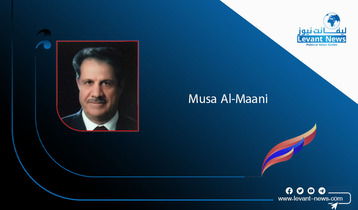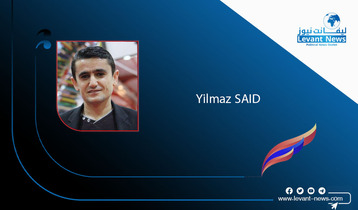-
The implications of Gaza’s latest flare-up

Strange things happened in Gaza’s latest flare-up: first and foremost was the shortness of the fighting – three days, known in Britain as a “long weekend”- 56 hours in total. That was less than one-fifth of the time the violence continued in May 2021, ignited by the al-Aqsa mosque riots spurred by the eviction of Palestinians from the Sheikh Jarrah neighbourhood in occupied East Jerusalem.
The most bizarre aspect, however, was that the Islamist movement Hamas did not join the attack in response to the pre-emptive Israeli strikes on Gaza, codenamed “Operation Breaking Dawn”. Hamas, though it expressed support for the Iranian-backed Palestinian Islamic Jihad (PIJ), stayed completely out of the conflict. This was the sixth major escalation since Hamas consolidated its control of the Gaza Strip back in 2007 and Israel tightened its blockade on the 2 million Palestinians in the coastal enclave.
Forty-nine Palestinians were killed, among them 16 children, and over 300 more were injured in Israel's military operation, which also saw more than a thousand rockets fired by PIJ towards Israel. No Israelis were killed and 60 were lightly injured. Unlike Hamas, PIJ is not responsible for running the day-to-day affairs of the impoverished territory. As a result it is viewed as a more militant resistance faction, often acting independently and sometimes even undermining Hamas’s authority.
Analysts believe one factor may have been that Hamas was seeking to rebuild its arsenal of weapons and tunnels under the border with Israel. The group does not want to give Israel an excuse to cancel the 14,000 Israeli work permits issued for Gaza since last year, or shut down the more consistent supply of electricity that currently reaches the strip’s sole power plant; both measures have made small but significant improvements to quality of life for the area’s impoverished population, of which 50% are unemployed.
The Gaza Strip has remained relatively quiet since the 11-day war in May last year, which killed 256 people in Gaza and 14 people in Israel. The new round of fighting came as Israel prepares for its fifth elections in four years after the collapse of a short-lived coalition government, which ousted the long-time prime minister, Benjamin (“Bibi”) Netanyahu. The bloodshed did not escalate into another all-out conflict, however, owing to a major gamble: that Hamas would resist being drawn into the fray.
The Israel Defence Forces (IDF) performed well. Israeli commentators were impressed by the precise intelligence provided by the Shin Bet security service and military intelligence on PIJ’s intent to commit attacks, as well as on the location of the organization’s leaders. Finally, there was the success against PIJ’s rocket and drone capabilities.
The general view is that until late July the tensions with the Gaza Strip were low. It was known that PIJ in Gaza was preparing attacks, but the warnings surged immediately after the arrest of Bassam al-Saadi, the organization’s chief in the northern West Bank town of Jenin, on the night of August 1. Videos posted on social media by Palestinians showed Border Policemen dragging Saadi, who is 62, and has been in and out of Israeli prisons for two decades.
The view in Israel was that PIJ’s efforts at revenge were decided on by the organization’s secretary-general, Ziad al-Nakhalah, who was in Tehran at the time. Perhaps it was an emotional reaction, with Nakhalah taking to heart the clips showing Saadi being dragged across the floor by the Israeli Border Police when he was taken into custody, with an attack dog on hand.
That revenge, it appears, was a reaction resembling that by Donald Trump in January 2020 when the then-US president ordered the assassination of the Iranian Revolutionary Guards commander General Qassem Soleimani. This happened after the Iranians insulted him by having their militias launch rockets at an American base in Iraq despite the president’s threats.
The Israel-Palestine conflict is one of the oldest, intractable and divisive issues in the world. But there are currently many other distractions: Russia’s invasion of Ukraine, US-China tensions over Taiwan, the world energy crisis and global warming. Something needs to happen to persuade governments – including Israel’s next one - to resolve this conflict rather than just manage it, and not to be so passive about the next predictable flare-up.
It is true that PIJ has suffered a setback in the fighting, but not one core issue of the Israel-Gaza relationship has been even remotely addressed. Egypt, Turkey and Qatar helped negotiate the ceasefire and Doha agreed to pay for the damage done to Palestinian homes. Maybe they can do more, with the support of the US?
As the liberal newspaper Haaretz editorialised last week: “The decision of the Hamas leadership to act as the ‘responsible adult’ in the latest round of fighting and avoid escalation may be signalling a willingness to reach an understanding on a long-term period of quiet with Israel, to work to improve the welfare of Gazans, to pave the way for an international effort to rehabilitate the enclave and perhaps even to reaching an agreement on returning Israeli hostages and soldiers missing in action.” Let’s hope they are right.
BY: IAN BLACK
You May Also Like
Popular Posts
Caricature
BENEFIT AGM approves 10%...
- March 27, 2025
BENEFIT, the Kingdom’s innovator and leading company in Fintech and electronic financial transactions service, held its Annual General Meeting (AGM) at the company’s headquarters in the Seef District.
During the meeting, shareholders approved all items listed on the agenda, including the ratification of the minutes of the previous AGM held on 26 March 2024. The session reviewed and approved the Board’s Annual Report on the company’s activities and financial performance for the fiscal year ended 31 December 2024, and the shareholders expressed their satisfaction with the company’s operational and financial results during the reporting period.
The meeting also reviewed the Independent External Auditor’s Report on the company’s consolidated financial statements for the year ended 31 December 2024. Subsequently, the shareholders approved the audited financial statements for the fiscal year. Based on the Board’s recommendation, the shareholders approved the distribution of a cash dividend equivalent to 10% of the paid-up share capital.
Furthermore, the shareholders endorsed the allocation of a total amount of BD 172,500 as remuneration to the members of the Board for the year ended 31 December 2024, subject to prior clearance by related authorities.
The extension of the current composition of the Board was approved, which includes ten members and one CBB observer, for a further six-month term, expiring in September 2025, pending no objection from the CBB.
The meeting reviewed and approved the Corporate Governance Report for 2024, which affirmed the company’s full compliance with the corporate governance directives issued by the CBB and other applicable regulatory frameworks. The AGM absolved the Board Members of liability for any of their actions during the year ending on 31st December 2024, in accordance with the Commercial Companies Law.
In alignment with regulatory requirements, the session approved the reappointment of Ernst & Young (EY) as the company’s External Auditors for the fiscal year 2025, covering both the parent company and its subsidiaries—Sinnad and Bahrain FinTech Bay. The Board was authorised to determine the external auditors’ professional fees, subject to approval from the CBB, and the meeting concluded with a discussion of any additional issues as per Article (207) of the Commercial Companies Law.
Speaking on the company’s performance, Mr. Mohamed Al Bastaki, Chairman BENEFIT , stated: “In terms of the financial results for 2024, I am pleased to say that the year gone by has also been proved to be a success in delivering tangible results. Growth rate for 2024 was 19 per cent. Revenue for the year was BD 17 M (US$ 45.3 Million) and net profit was 2 Million ($ 5.3 Million).
Mr. Al Bastaki also announced that the Board had formally adopted a new three-year strategic roadmap to commence in 2025. The strategy encompasses a phased international expansion, optimisation of internal operations, enhanced revenue diversification, long-term sustainability initiatives, and the advancement of innovation and digital transformation initiatives across all service lines.
“I extend my sincere appreciation to the CBB for its continued support of BENEFIT and its pivotal role in fostering a stable and progressive regulatory environment for the Kingdom’s banking and financial sector—an environment that has significantly reinforced Bahrain’s standing as a leading financial hub in the region,” said Mr. Al Bastaki. “I would also like to thank our partner banks and valued customers for their trust, and our shareholders for their ongoing encouragement. The achievements of 2024 set a strong precedent, and I am confident they will serve as a foundation for yet another successful and impactful year ahead.”
Chief Executive of BENEFIT; Mr. Abdulwahed AlJanahi commented, “The year 2024 represented another pivotal chapter in BENEFIT ’s evolution. We achieved substantial progress in advancing our digital strategy across multiple sectors, while reinforcing our long-term commitment to the development of Bahrain’s financial services and payments landscape. Throughout the year, we remained firmly aligned with our objective of delivering measurable value to our shareholders, strategic partners, and customers. At the same time, we continued to play an active role in enabling Bahrain’s digital economy by introducing innovative solutions and service enhancements that directly address market needs and future opportunities.”
Mr. AlJanahi affirmed that BENEFIT has successfully developed a robust and well-integrated payment network that connects individuals and businesses across Bahrain, accelerating the adoption of emerging technologies in the banking and financial services sector and reinforcing Bahrain’s position as a growing fintech hub, and added, “Our achievements of the past year reflect a long-term vision to establish a resilient electronic payment infrastructure that supports the Kingdom’s digital economy. Key developments in 2024 included the implementation of central authentication for open banking via BENEFIT Pay”
Mr. AlJanahi concluded by thanking the Board for its strategic direction, the company’s staff for their continued dedication, and the Central Bank of Bahrain, member banks, and shareholders for their valuable partnership and confidence in the company’s long-term vision.
opinion
Report
ads
Newsletter
Subscribe to our mailing list to get the new updates!





















